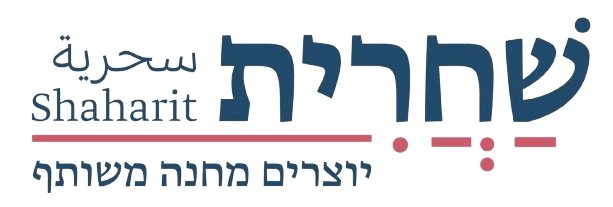120 Program Evaluation 2014-2020
The 120 Program, a political, multicultural program designed to foster a new type of social collaboration, launched its first cohort in 2014. The program, initiated by Shaharit, was dedicated to creating a social-political leadership that would create an alternative to Israel’s dichotomous political nature by training twenty emerging leaders each year. During the six years that the program ran, there were six cohorts. Each was distinguished by cultural, ethnic, and ideological diversity. The Fellows worked to promote an approach that would advocate for the Common Good, beneficial to all.
Upon the conclusion of the sixth cohort, Shaharit decided to do an extensive evaluation of the program. The ensuing study was designed to help the organization learn from the processes their graduates underwent during the training year and its aftermath, learning from the process they reflected upon. The Shaharit staff chose 28 graduates from the broadest cross-section possible of each of the different cohorts and asked them to participate in the study, conducted via unstructured and semi-structured interviews. Twenty-five interviews were held between July and September 2021. Interviews were coded based on in-depth reading and thematic classification during the analytical stage. The coded data were then assembled and interwoven into thematic chapters to form the document’s body.
Main Findings:
- Most of the graduates’ political worldviews were significantly influenced by their participation in the training year.
- A substantial number reported that their political worldview had changed to reflect the adoption of a new perspective on the political arena and those acting within it.
- This new perspective allowed the interviewees to formulate a more complex political narrative regarding themselves and others.
- Their new perspective led many graduates to feel an increased sense of obligation to engage in political and social activity.
- The 120’s years of training encouraged the Fellows to chart paths that would promote the common good, beneficial to all, without regard to political, national, or cultural identity.
- Some interviewees felt that their public endeavors had been related to the common good even before joining the Shaharit program.
- Interviewees reported that the in-depth study of the conceptual world connected to the common good had a remarkable impact.
- The encounter with a community of Fellows that believed in the common good, provided graduates with the boost necessary to continue their communal efforts.
- Interviewees reported that conceptualizing their professional and political endeavors for the common good still pervades their thinking years later. • Some of the interviewees thought that the concept of the common good was somewhat ambiguous and proposed adopting a more precise and pragmatic definition.
- Several issues related to the training year were raised:
- Some graduates would have liked to have been exposed to additional practical content and more political tools during the training year.
- Some of the graduates felt that there was insufficient grappling with the emotional processes, the conflicts that occurred, and the contents learned during the training year.
- Some of the graduates felt that stricter attention should have been paid to appropriately representing the various internal divisions in each sector.
4. Broadening and deepening one’s perspective on Israeli society as a consequence of participating in the training year:
- The training year enabled a substantial number of the graduates to adopt richer and more complex worldviews concerning the other groups comprising Israeli society.
- The interviewees believed that the close personal contact, dialogue, and extended time they spent together led them to abandon their stereotypical conceptions of the various sectors, discover points of intersection and different common denominators, and make their first acquaintance with social and cultural issues previously foreign to them.
- The 120 program strives to create a leadership cadre capable of calling into question the dichotomous nature of Israeli politics. The interviews established that the program’s graduates underwent a meaningful process in grappling with the ‘other’s narrative’ (a worldview diametrically opposed to their own political, religious, and social-cultural understandings).
- A substantial number of interviewees reported a significant change in their ability to empathize with explanations of reality that contradicted their own beliefs and that they acquired the skills to listen, hold a dialogue, and accept and respect the other.
- The interviews revealed that these capabilities and skills continue to influence the graduates after the training year.
- One of the program’s highlights is the trip to Morocco. The testimonials and stories shared by the graduates reflect the centrality of the trip and its importance in bringing the training year to a close.
- The interviews revealed that the trip helped (mainly the Arab Fellows) reconceptualize the power structure between the Jews and Arabs in Israel.
- Many of the interviewees related that they underwent extremely powerful, personal processes during the trip and afterward, including drawing closer to family traditions and their colleagues in the group.
- The interviews revealed that the values the graduates acquired during the training year seep into their familial, communal, and professional surroundings. The stories and anecdotes recalled in the interviews teach us that Shaharit’s perspective has a ripple effect, influencing the graduates and those who come into contact with them in various contexts.
- The graduates interviewed for the study attested to the developmental processes, the learning, and the intellectual and personal growth.
- The graduates described processes of self-discovery in which they found new capabilities and skills.
- The graduates reported their realization that in light of the program, they developed the abilities to approach the ‘other’ without prejudgments or prejudice and to identify the contexts in which they include or exclude others.
- Jewish graduates reported a renewed connection with their ethnic sub-group’s traditions (Mizrachi, Russian, Ethiopian, etc.) from which they had grown distant and to Jewish tradition in general.
- At the end of the training year, the graduates are invited to participate in 120’s follow up program and the various activities. The follow-up program has only run in the current design over the last year, so the interviewees were explicitly asked if they participated in the meetings over the year. Approximately seventy percent of the interviewees approached attended meetings over the last year, and they responded to questions about the follow-up program.
- The graduates who came to the follow-up meetings described the learning processes as applicable and the practical training as valuable.
- The general feeling among the interviewees was that the workshops and professional development days were diverse and served their purposes.
- The graduates who participated in the meetings related that they came to maintain and expand the social network created during the training year.
- The interviews taught us that further structured time needs to be devoted during the meetings to deepen the acquaintanceship between graduates from different cohorts, particularly networking.
- The collaboration between graduates and the continuation of the network after the training year presented us with additional dimensions for examining the impact of the training year and the follow-up program.
- According to many of the interviewees, the experience of being in a peer group and the social network created over the training year and the follow-up program were two of the program’s most important assets.
- Many interviewees felt that they received personal, professional, and political support from their colleagues in the network, even from those who were not among their good friends.
- Some of the interviewees told us about their political, social, and personal collaborations with other Fellows over the training year and which continued after it ended.
- The graduates called for an increased public presence of program 120 in particular and Shaharit in general. Some believed that the collaborative efforts of the graduates, on the one hand, and Shaharit’s activities as an organization, on the other, need to focus on providing a stronger voice for Shaharit’s vision in the Israeli public sphere.



